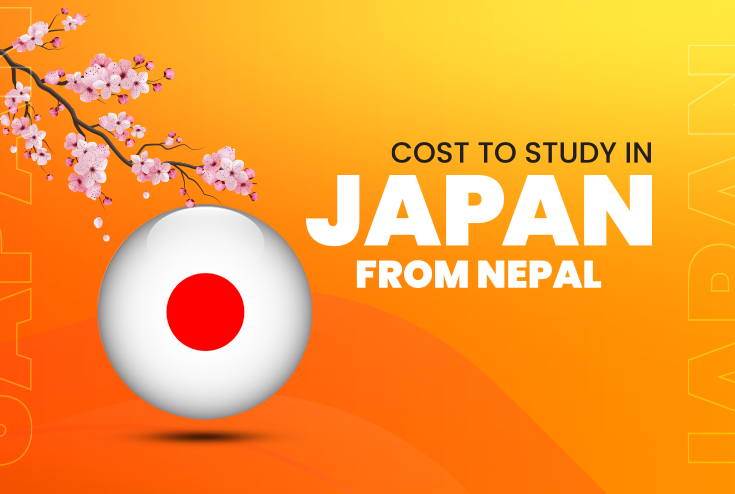
Introduction to Studying in Japan
Embarking on a journey to study abroad can be an exciting but daunting prospect for many students. Japan, with its fusion of ancient traditions and cutting-edge modernity, offers a unique, enriching study environment that can shape a student's future. This East Asian country is renowned for its technological innovations, superior educational institutions, and rich, distinct culture that has fascinated the world.
Table of Contents
- Introduction to Studying in Japan
- The Appeal of Japan for Nepalese Students
- Understanding the Costs
- Tuition Fees
- Undergraduate Courses
- Graduate Courses
- Accommodation Costs
- Living Expenses
- Scholarship Opportunities
- Japanese Government (MEXT) Scholarships
- Private Scholarships
- Part-Time Job Opportunities
- Preparing for the Journey: Necessary Expenses
- Travel Expenses
- Visa Fees
- Health Insurance
- Conclusion
- Frequently Asked Questions
The Appeal of Japan for Nepalese Students
For Nepalese students, Japan stands out as a country with remarkable technological progress and educational excellence. The chance to be part of this technologically advanced society, coupled with the opportunity to learn Japanese - a language gaining global significance - makes Japan an attractive destination. Moreover, Japan's relative proximity to Nepal, shared Asian values, and the presence of a supportive Nepalese community in Japan make the transition smoother for Nepalese students.
Understanding the Costs
Pursuing an education in Japan as an international student involves a variety of expenses. It's not just about tuition fees; there are also living expenses, accommodation costs, and other necessary expenditures that students need to prepare for. Let's deep dive into these costs in more detail.
Tuition Fees
Tuition fees in Japan vary significantly based on the type and prestige of the institution and the specific course of study.
Undergraduate Courses
For an undergraduate program, international students can expect to pay between ¥500,000 and ¥1,000,000 ($4,500 to $9,000) per year. However, prestigious private universities may charge higher tuition fees.
Graduate Courses
For postgraduate courses, the costs could be anywhere between ¥300,000 to ¥1,200,000 ($2,700 to $10,800) per year, depending on the chosen field of study and university.
Accommodation Costs
Accommodation is another significant aspect of the cost of studying in Japan. The cost varies greatly depending on whether you live in a major city like Tokyo or Osaka, or in the countryside.
A single room in a university dormitory can cost around ¥30,000 ($270) per month, while a private apartment in the city could cost upwards of ¥60,000 ($540) per month. It's important to research accommodation options in your chosen city and make a budget that includes utility and internet costs.
Living Expenses
Living expenses in Japan include everyday costs such as food, transportation, entertainment, clothing, and other miscellaneous expenses. The cost of living can vary depending on personal lifestyle and the city of residence.
On average, students might need around ¥50,000 to ¥70,000 ($450 to $630) per month. However, these costs can be managed effectively with smart budgeting and taking advantage of student discounts available across the country.
Scholarship Opportunities
Studying abroad can be expensive, but thankfully there are numerous scholarships and grants available to international students in Japan.
Japanese Government (MEXT) Scholarships
The Japanese Government's MEXT (Ministry of Education, Culture, Sports, Science, and Technology) scholarship is a popular and highly competitive scholarship. It covers tuition, and accommodation, and provides a monthly allowance. The application process is rigorous, but the reward is worth the effort.
Private Scholarships
Various private scholarships can significantly reduce the financial burden of studying in Japan. These are offered by different private foundations, international organizations, and sometimes by the universities themselves. It's advisable to research and apply for these scholarships well in advance.
Part-Time Job Opportunities
Many international students in Japan take up part-time jobs to support their living costs. Students are allowed to work up to 28 hours a week during term time and up to 40 hours during holidays, provided it doesn't interfere with their studies. Popular part-time jobs include language teaching, convenience store work, and jobs within the university.
Preparing for the Journey: Necessary Expenses
Apart from tuition fees and living costs, students also need to factor in several other costs when preparing to study in Japan.
Travel Expenses
The cost of a one-way flight from Kathmandu to Tokyo ranges from $400 to $700, depending on the time of booking, airline, and flight route.
Visa Fees
The Japanese student visa application fee is ¥3,000 ($27). In addition, there might be extra charges for document translation and notarization.
Health Insurance
In Japan, it is mandatory for all students to sign up for the National Health Insurance program. With an estimated yearly premium of ¥20,000 (equivalent to $180), this scheme offers considerable coverage for various medical services.
Conclusion
While the cost of studying in Japan from Nepal might seem substantial, it's important to see it as an investment in a world-class education and a transformative life experience. With proper planning, and budgeting, and by leveraging scholarships and part-time work, Nepalese students can manage their expenses effective
FAQ
What is the average cost of studying in Japan from Nepal?
The average cost can vary greatly depending on the university, course, and city of residence. However, it's safe to budget around $10,000 to $15,000 per year including tuition, accommodation, and living expenses.
Are there scholarships available for Nepalese students in Japan?
Yes, there are numerous scholarships available including the Japanese Government's MEXT scholarships and various private scholarships.
Can Nepalese students work part-time while studying in Japan?
Yes, international students in Japan are allowed to work up to 28 hours a week during term time and up to 40 hours during holidays.
What are the costs apart from tuition for studying in Japan?
Other significant costs include accommodation, living expenses, health insurance, and travel costs.
Is health insurance mandatory for students in Japan?
Yes, all students in Japan are required to have health insurance.